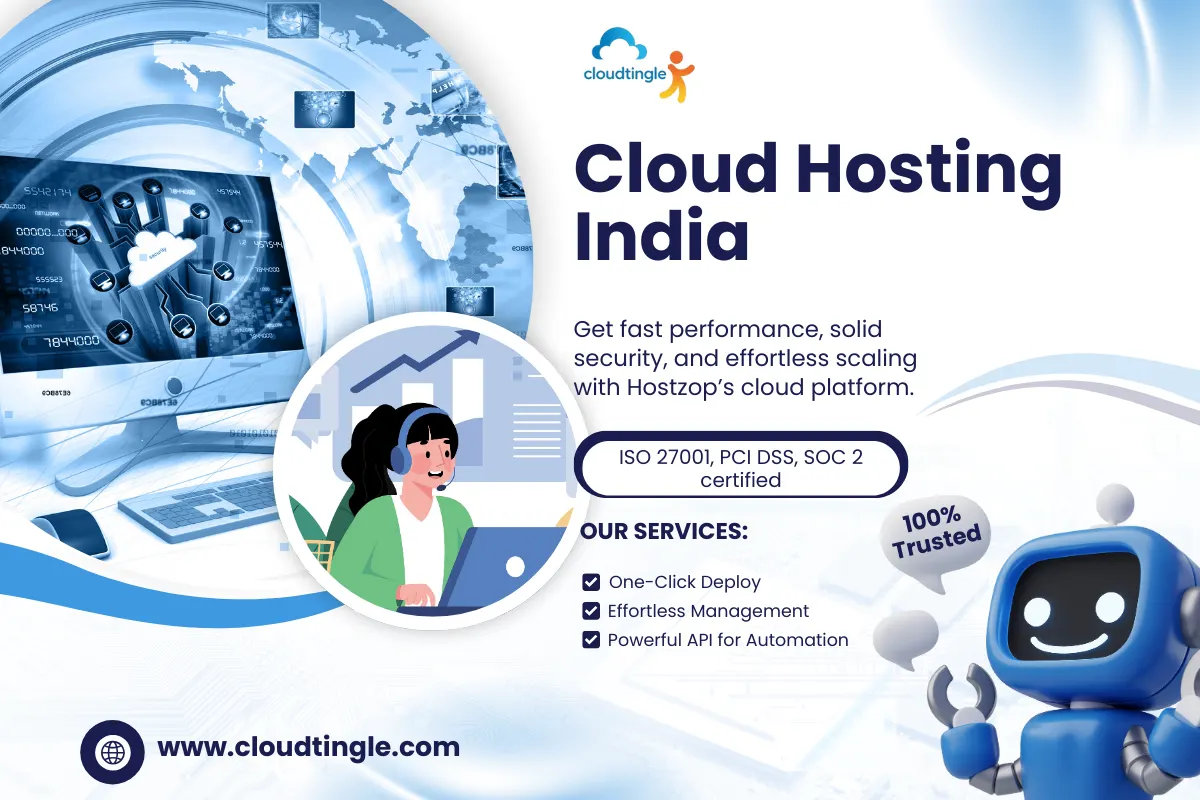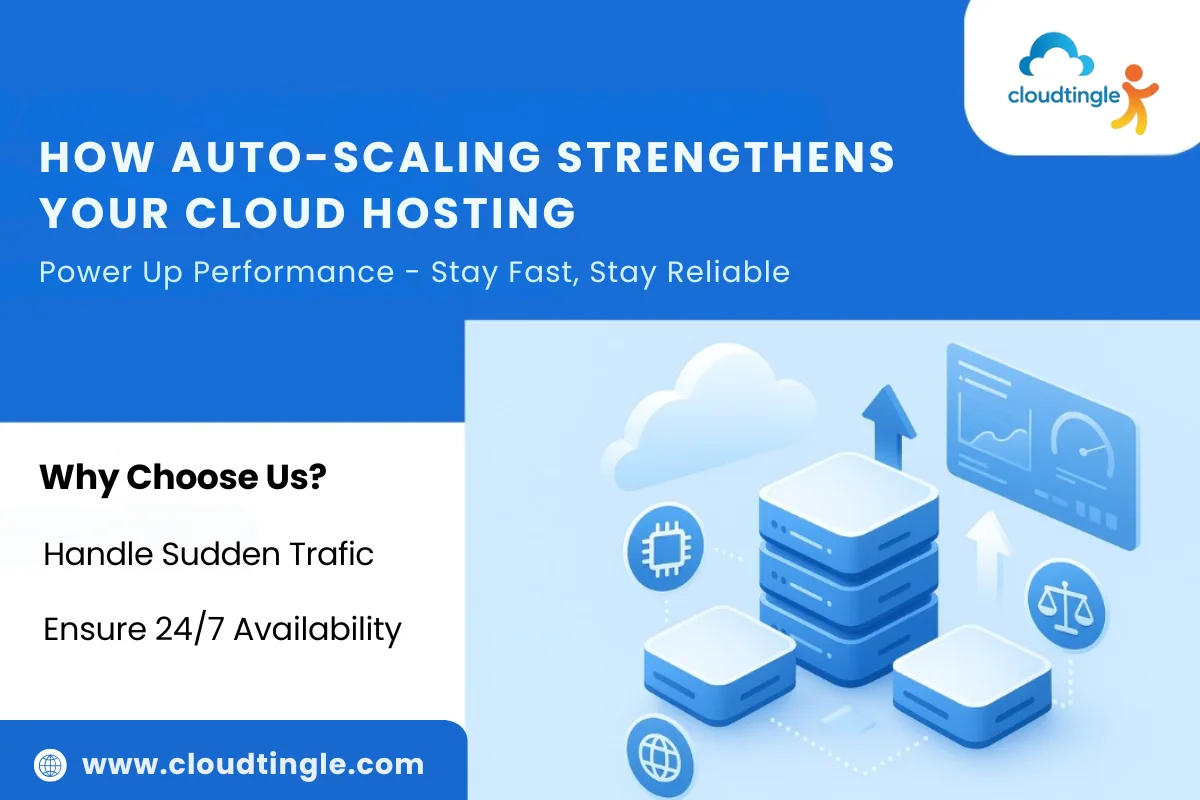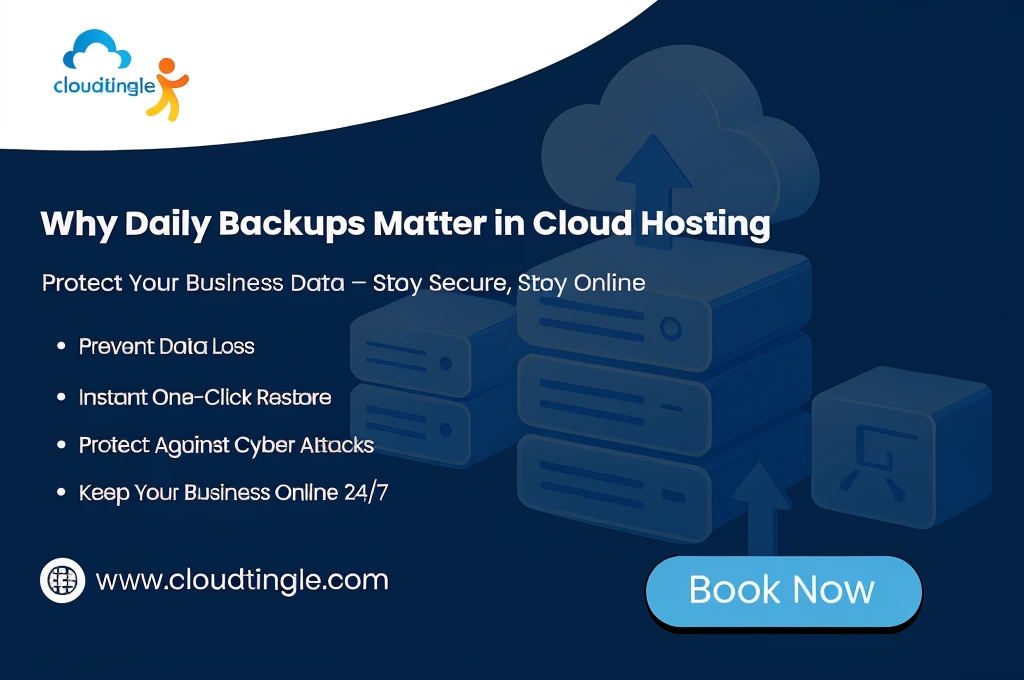Your hosting environment can improve your industry’s online performance, speed, security, and scalability. In 2025, businesses are spoilt for choice — with VPS Hosting, Dedicated Servers, and Cloud Hosting all evolving rapidly to meet modern IT needs.
But which one is the right fit for your use case?
Let’s compare all three choices— VPS vs Dedicated Server vs Cloud Hosting — in-depth so you can make a wise, future-ready decision.
What is VPS Hosting?
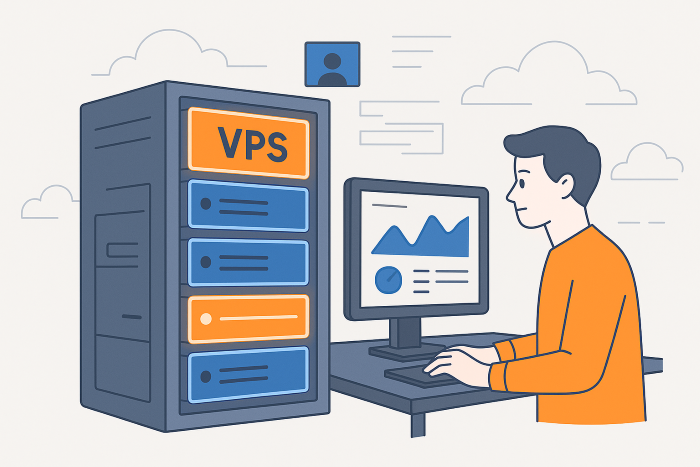
Virtual Private Server (VPS) hosting is a middle ground between shared and dedicated hosting. It uses virtualization to create isolated virtual environments on a physical server. Each VPS gets a portion of the server’s resources and operates independently.
Pros:
- Cost-effective: Cheaper than a dedicated server, yet powerful.
- Root Access: Full control over OS and software.
- Better Performance than Shared Hosting: An isolated environment ensures that others don’t affect your site.
- Easily Scalable: You can upgrade your resources with minimal downtime.
Cons:
- Resource Limits: Still shares hardware with other VPS users.
- Less Powerful than Dedicated: Not suitable for high-load enterprise applications.
Popular VPS Providers:
What is Dedicated Server Hosting?

A Dedicated Server gives you the entire physical server exclusively for your business. You get complete control over hardware, OS, applications, and security.
Pros:
- Raw Performance: No sharing of CPU, RAM, or bandwidth.
- Extreme Control: Configure the server exactly how you want.
- Highest Security: Fully isolated, better for sensitive workloads.
- Customizable: Great for gaming servers, SaaS, large databases, etc.
Cons:
- Expensive: Higher upfront and maintenance costs.
- Requires Technical Knowledge: Server management skills needed.
- Scaling is Limited: Vertical scaling only (by upgrading server specs).
Popular Dedicated Server Providers:
What is Cloud Hosting?
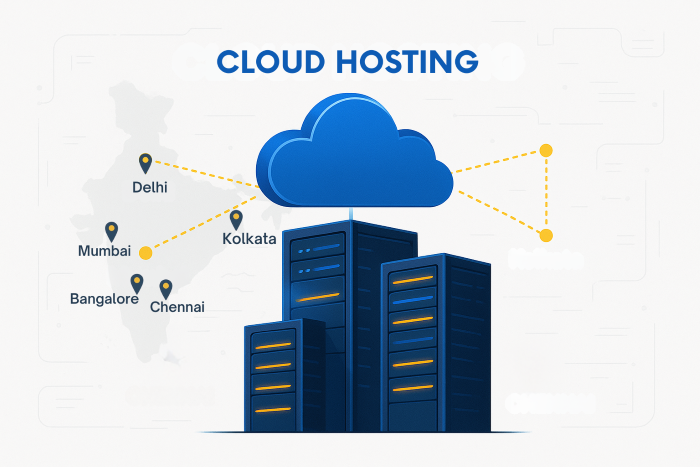
Cloud Hosting uses a network of virtual and physical servers across multiple data centers. Your website or app is hosted on a “cluster” rather than a single server, offering high uptime and automatic failover.
Pros:
- Highly Scalable: Instantly scale up/down based on demand.
- Redundancy & Reliability: If one server fails, others pick up the load.
- Pay-as-You-Go: Pay only for the resources you consume.
- Great for India: Providers with Indian data centers offer low latency and GST-compliant billing.
Cons:
- Complex Pricing: Difficulty estimating monthly bills.
- Vendor Lock-in: Migrating between cloud platforms can be hard.
- Less Control: Deep hardware-level access isn’t always available.
Popular Cloud Server Providers:
VPS vs Dedicated vs Cloud – Head-to-Head Comparison
| Feature | VPS Hosting | Dedicated Server | Cloud Hosting |
|---|---|---|---|
| Performance | Medium | High | Dynamic (Scalable) |
| Scalability | Limited | Low | Very High |
| Cost | Affordable | High | Varies (Pay-as-you-go) |
| Control | Root access | Full access | Platform-dependent |
| Security | Isolated but shared hardware | Fully isolated | Highly secure with distributed firewall rules |
| Best For | Startups, Dev/Test, Low traffic sites | Enterprise apps, Large databases | SaaS, Ecommerce, Traffic spikes |
Which One Should You Choose in 2025?
Choose VPS Hosting if:
- Your app experiences fluctuating traffic.
- You need fast deployments, redundancy, and scalability.
- You want to pay based on real usage (and scale to global audiences).
Choose a Dedicated Server if:
- Your application handles heavy traffic, transactions, or data.
- Security and performance are your top priorities.
- You want to run custom configurations (e.g., large CRMs).
Choose Cloud Hosting if
- Your app experiences fluctuating traffic.
- You need fast deployments, redundancy, and scalability.
- You want to pay based on real usage (and scale to global audiences).
Conclusion: Find the Right Fit — Not the Trend
There’s no one-size-fits-all hosting solution. It entirely depends on your business’s workload, budget, scalability needs, and technical expertise. VPS is a great starting point, Dedicated is for peak performance, and Cloud is the future of scalable applications.
If you’re hosting in India, choosing a provider with local infrastructure (like Chennai-based data centers), low-latency routing, and GST-compliant billing is vital — and only a few providers offer all these combined.
Explore your needs, compare smartly, and choose the solution that will grow with your business.




